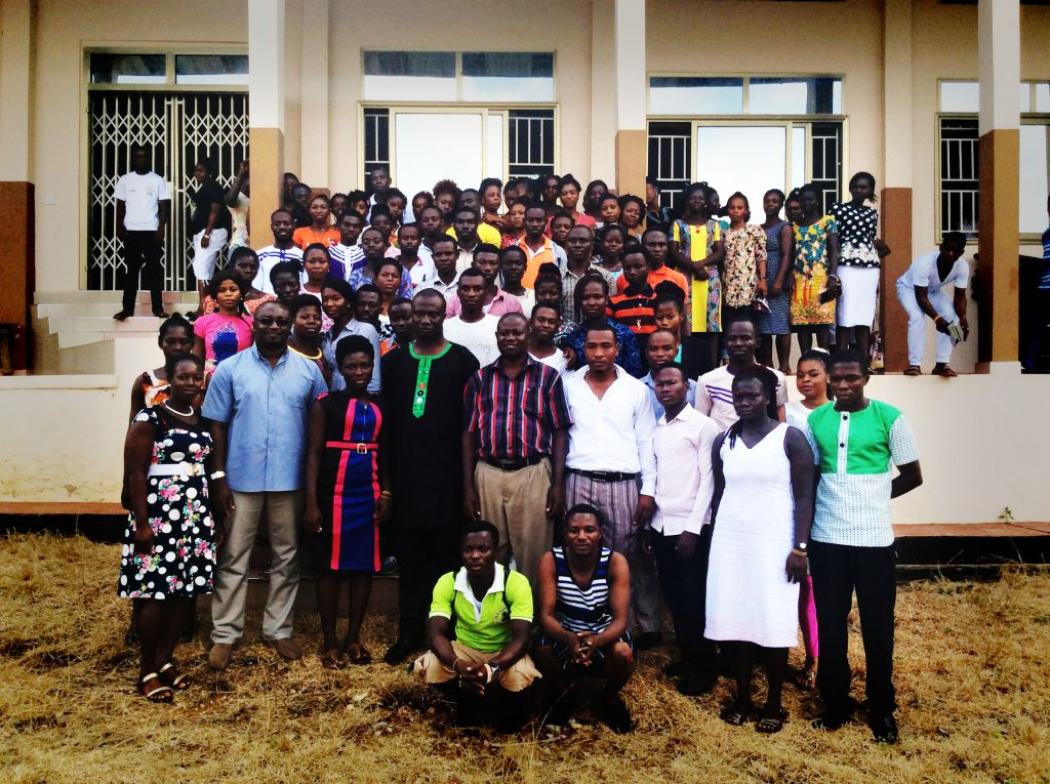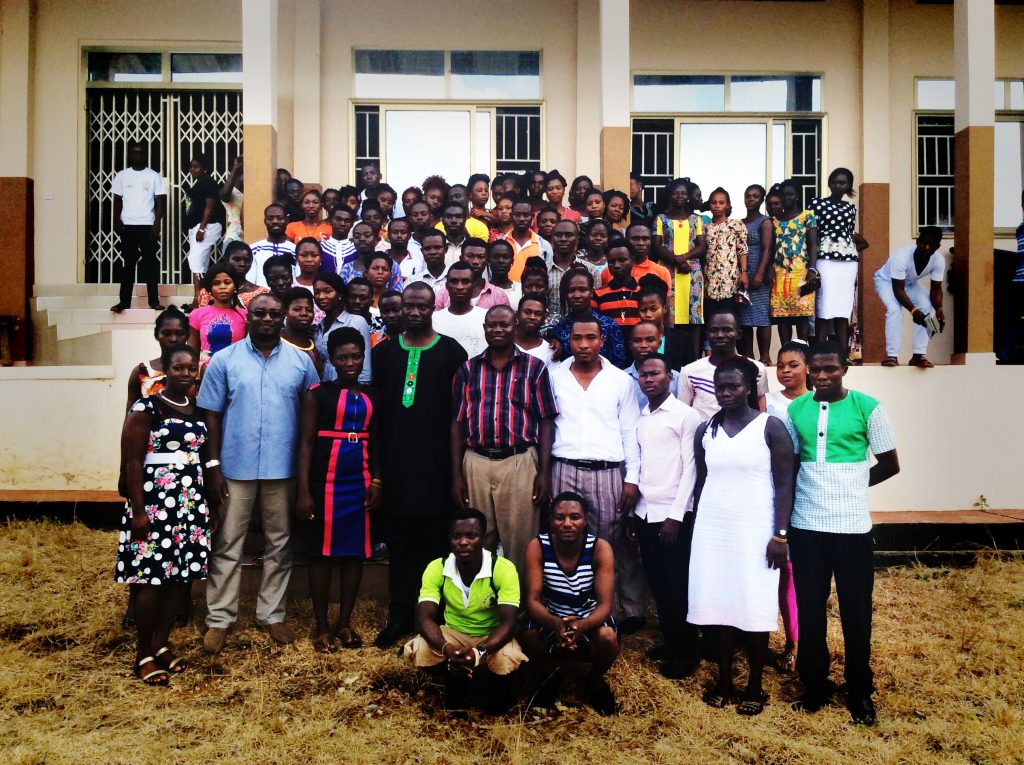Ghana’s new CHW program also platform for eHealth innovations

103 newly trained community health workers from the Amansie West District of Ghana at their graduation ceremony. Courtesy One Million Community Health Workers Campaign.
By One Million Community Health Workers Campaign

103 newly trained community health workers from the Amansie West District of Ghana at their graduation ceremony. Courtesy One Million Community Health Workers Campaign.
In June 2015 the One Million Community Health Workers Campaign hosted a workshop on collaboration between countries in sub-Saharan Africa and international development partners on financing the scale-up of community health workers (CHW) programs. The workshop culminated in the signing of a Joint Call to Action to the international community for increasing funding for national CHW programs, with representatives of ministries of health and finance from 15 African countries as signatories.
During that meeting, Columbia University Prof. Jeffrey Sachs and his team met with Ghana His Excellency President John Mahama, who decided to take on this challenge as a step toward ensuring universal health coverage (UHC) in the country.
Ghana’s program is a partnership of the Ghana Health Services (GHS), the Ghana Youth Employment Agency within the Ministry of Employment and Labour Relations, and Ministry of Health, conducted with the support of World Vision International and the 1mCHW Campaign. The program has recruited, trained and deployed 20,000 CHWs and 1,000 eHealth Technical Assistants (eTAs) across the country. The CHWs have been trained to provide community education on nutrition, hygiene and sanitation, and the prevention of malaria, diarrhea, respiratory and other diseases.
They will also undertake community mobilization and support the community-based management of childhood illnesses by serving as adherence counsellors, defaulter tracers, initiators of community-based telemedicine, and following up on progress of patients and providing additional health education to families.
The eTAs will provide data support to the Community Health Officers (CHOs) and CHWs, strengthening Ghana’s eHealth and data collection system. Both CHWs and eTAs have been integrated into Ghana’s health system. CHWs work under the direct supervision of Community Health Officers, who work in the Community-based Health Planning and Services (CHPS) zones; while eTAs work under the direct supervision of the District Health Information Officers of the GHS.
Tools, equipment, and supplies for the work of CHWs have also been seamlessly mainstreamed through the Ghana Health Service, in a decentralized manner. With the financial support of GlaxoSmithKline (GSK), the Campaign is supporting the training and deployment of 1,800 CHWs in the Ashanti region in partnership with Millennium Promise and the GHS. These CHWs will be equipped with smart phones and/or tablets, with an outreach focused software application made by Dimagi that will complement the facility based e-tracker of Ghana’s District Health Information Management System (DHIMS2), integrating the two into an overall eHealth system.
This pilot interface system is known as ‘Cetracker’ The Cetracker system serves multiple functions including (1) decision-support tool for the CHWs, (2) an audio-visual device for education purposes for the clients, and (3) real-time GIS-enabled data collection facilitating longitudinal tracking of cases, disease mapping, surveillance for new diseases, and birth and death registrations. In the Cetracker, real-time household and community data are presented as customized reports, dashboards, and maps to allow easy visualization and quick decision-making. With Cetracker, the quality of the performance of CHWs can be electronically monitored with the aim of continuous, databased quality improvement of health care delivery.
The Ashanti region is serving as a national demonstration site for Ghana’s scale-up and will be evaluated using a variety of indicators. The program will map essential community infrastructure for health services – such as health facilities, water points, road network, internet connectivity, and emergency referral services.
This helps to tailor health services to communities and guides the prioritization of interventions. The Ashanti regional scale-up is also integrated with the telemedicine initiative to improve the continuity of care from households to the health system. There is also potential to leverage the CHWs and the eHealth technical assistants to address issues on non-communicable diseases (NCDs) and to contribute to meeting the UNAIDS 90-90-90 goal of getting 90% of people living with HIV to know their status; 90% of those diagnosed on treatment; and 90% of those on treatment as virally suppressed.
This initiative will strengthen Ghana’s health services and provide employment opportunities for the country’s unemployed youth and will in turn help Ghana accelerate its progress towards achieving the Sustainable Development Goals (SDGs) on health and youth employment (SDGs #3 and #8). The 1MCHW Campaign is very excited and committed to continue working with Ghana as it builds its pioneering cadre of professionalized CHWs supported by mHealth and telemedicine, improving the quality of life and health of Ghanaian rural communities.
